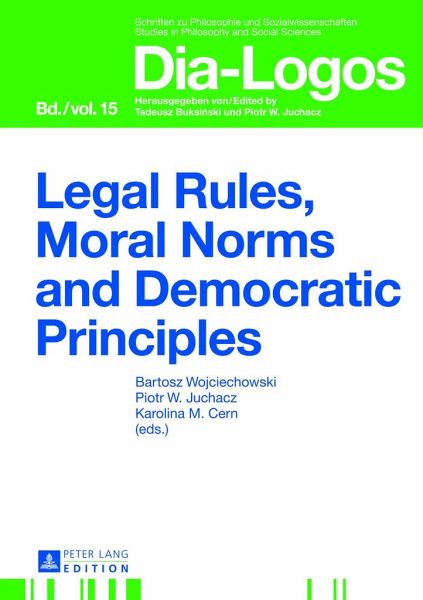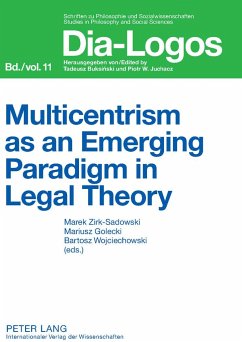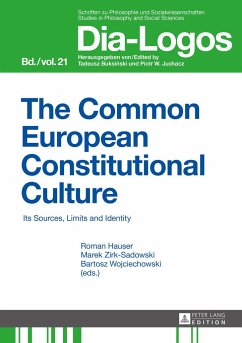
Legal Rules, Moral Norms and Democratic Principles
Versandkostenfrei!
Versandfertig in 6-10 Tagen
74,60 €
inkl. MwSt.

PAYBACK Punkte
0 °P sammeln!
The book tackles significant problems that each historian of law faces in the light of present decline of philosophical, ethical and ideological canons in the overall context of western civilization. The issues discussed in the book manifest themselves in the question whether the "democratic turn" is a real or just a virtue one. Democracy generally means governance by the people - but who are the people? What kind of governance by the people can be claimed as democratic - all of the various types that exist or only a single, chosen one? What - if any - is the normative issue of such a governan...
The book tackles significant problems that each historian of law faces in the light of present decline of philosophical, ethical and ideological canons in the overall context of western civilization. The issues discussed in the book manifest themselves in the question whether the "democratic turn" is a real or just a virtue one. Democracy generally means governance by the people - but who are the people? What kind of governance by the people can be claimed as democratic - all of the various types that exist or only a single, chosen one? What - if any - is the normative issue of such a governance? Democracy, after all, is not a simple descriptive model of governance; it is deeply rooted in our preferences and hence normative patterns of conduct, which are not yet to be understood as the norm but rather as founding principles. Democracy is a thoroughly normative model. It is always as constructed and uttered in the picture of life at the same time.














